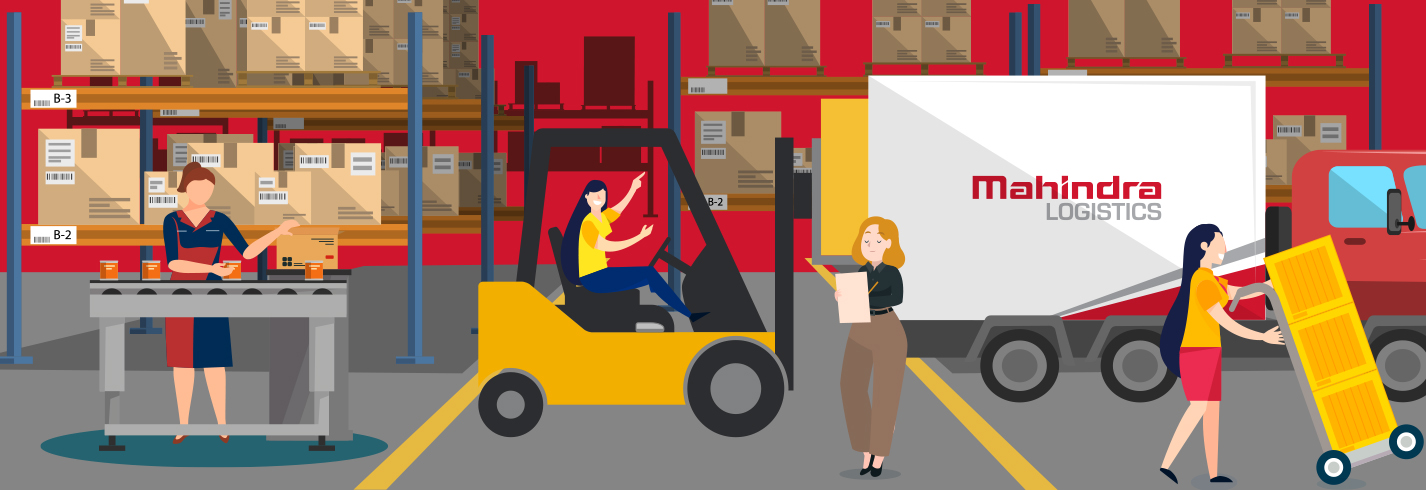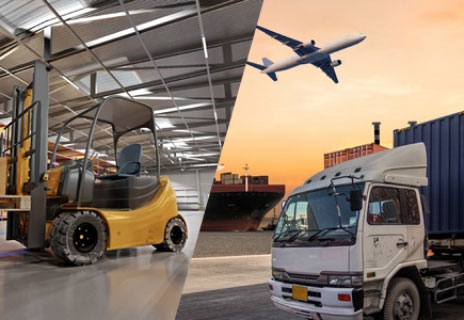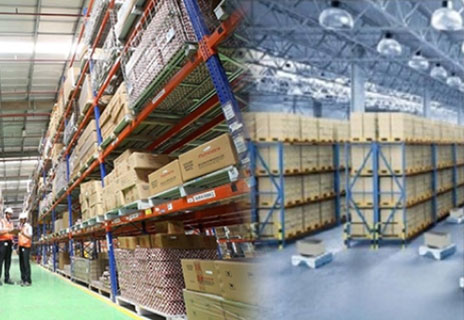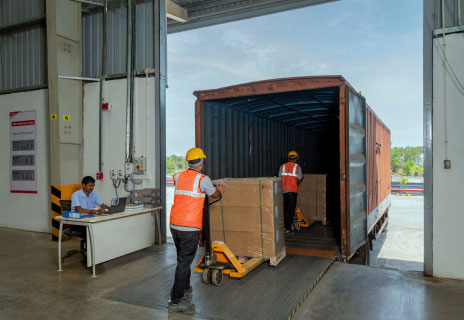
Logistics in India - on the road to gender diversity
Published on: May 2021
In the recent past we have been witnessing women from across the globe, and across industries, shatter the proverbial glass ceiling. India has been no different. With the increased focus by the Central and State governments on women’s education and with a shift in long-held patriarchal values, which have so far held women as inferior in terms of intellect and strength, India is seeing a spurt in the number of women joining the workforce in roles traditionally held by men. The logistics and transportation industry is a testament to this revolution.
Globally, in 2010, women formed only 8% of the logistics workforce, this number has steadily increased over the years, and as of 2018 stands at 20%. In India specifically, this number currently stands at approximately 15% and is expected to reach the current global average of 20% by 202. This is a slow but promising change. The industry has long been held as one unsuitable for women with a perception of being masculine, labour intensive and unsafe. Traditionally women in this sector had roles primarily restricted to carrying out soft tasks like packaging and sorting when it came to field jobs, or in support functions like human resource management and administration when it came to corporate jobs. This trend has seen a change with more women doing the heavy lifting (pun intended!) on the field and contributing in managerial and operational roles off it.
So what are the reasons for this change? While there are several socio-economic factors that have had a positive impact, I have tried to elaborate on some of the more pertinent factors below:
‘De-Genderisation’ of Roles: Whilst women have always been employed in packaging and sorting activities in warehouses, there was still a reliance on men for goods that were too heavy to be handled by women. With the latest picking and sorting machines that are now available, women can now handle these tasks independently. Women operating heavy machinery like forklifts were also previously unheard of, however, this is no longer the case. In Ikea’s Hyderabad and Pune centres alone, there are 18 female forklift operators working successfully along with their male counterparts. Ikea which has always been an equal opportunity employer, with an equal number of female representation across their entire organisation, plans to now train even more women to operate their specialised forklift machines. In Mahindra Logistics too we are making an effort to hire more women in blue collared jobs. Our Chakan (Pune) warehouse currently has 5 female forklift operators and their success in this role has encouraged us to hire more women across our warehouses pan India.
The transportation side of things is also witnessing a change, albeit at a snail’s pace. Whilst long haul travel is still completely male-dominated, with only a handful of female truck drivers, there are inroads being made in the last mile delivery segment. HeyDeedee is a last mile delivery start-up founded by a woman and employing only women riders. The aim is to create job opportunities for women in a field which usually hires only men. EvenCargo is another such female only delivery company operating out of Delhi. Amongst the big players, Amazon operates two very successful women only delivery centres in Thiruvananthapuram and Chennai and are planning on launching more such centres in the near future.
In the people, transportation business, as well as women drivers, are becoming more common with Uber and Ola enrolling more women drivers. At Mahindra Logistics too, our people transportation business has recently hired female drivers in Kerala and in Delhi.
Diversity Drives: Companies across industries have realised the importance of diversity in the workplace and the role women play in positively contributing towards both the top line and bottom line of business. At Mahindra Logistics, we wholeheartedly concur with this point of view. Women are adept at multitasking, a skill which is extremely useful in any job profile but especially so in logistics where there are always multiple stakeholders and projects going on simultaneously. Various research studies also indicate women as being more loyal to their employers. Companies have now realised this as the attrition rate amongst female employees is considerably lower than amongst their male counterparts. Versity just within the organisation but actively encourage it outside as well by promoting women entrepreneurs in this sector. We have worked alongside more than 30 female fleet owners and service providers. Every year our CEO, takes special efforts to meet, interact and recognise these enterprising ladies to encourage and support them in their business endeavours.
Skill building and Training: As per the Logistics Sector Skill Council, the size of India’s Logistics sector is USD 150 billion and expected to grow to USD 200 billion by 2020. The need for skilled and trained work force is high and as of December 2018, approximately 135,000 people were enrolled for skill development courses and training in this sector. Of this, the Council noticed a 15% increase in the number of women who had enrolled in 2018 compared to the previous year. More women have been coming forward for training in roles like freight forwarding, warehouse management and operating heavy machinery like forklifts. The Council has been making further efforts to increase the number of women coming forward for training by creating curriculums and course specifically for women. Various mainstream universities in India like the IITs and IIMs have also been offering specialised courses on supply chain management and logistics. In 2014, the Chartered Institute of Logistics and Transport in India launched WiLAT (Women in Logistics and Transport) with the aim of encouraging more women to join the sector and also to provide further training to those already in it. Measures like these are all promising signs of the efforts being made to make the logistics sector a more welcoming and encouraging field for women to consider a career in.
However, like all other paths, or in this case roads, which lead to change, this one is also peppered with many roadblocks and it would be amiss not to mention the areas which require improvement. India still has a long way to go before there is complete gender equality at the workplace and outside of it, the logistics and transportation sector, in particular, has a few additional hurdles to cross.
One of the biggest deterrents preventing women from joining this sector is the work environment. In most instances, the sort centres and warehouses are located away from the main city centres and towns making it difficult for women to commute to and from work. Lack of basic amenities like clean restrooms and unhygienic workspaces also make it difficult for women to work. When it comes to the transport sector, the rest stops for truck drivers are usually shared accommodations with access to unsanitary restrooms. This again makes it very difficult for women to choose this as a career option as safety is a big question mark. Efforts need to be made to resolve these basic issues which will then make this sector more attractive to women. At Mahindra Logistics, we make concerted efforts to ensure a safe and hygienic work environment for our female colleagues working out of our warehouses and sort centres by ensuring there are separate and sufficient restrooms, flexible timings for women with families and safe passage to and from work.
More companies need to make a concerted effort at hiring women in roles traditionally reserved for men (warehouse management, delivery services, and inventory management to name a few). Training programmes and career enhancement programmes specifically for women also need to be held on a regular basis. Currently, very few women can be found in senior management positions in logistics companies. Companies need to encourage and promote capable women to leadership roles and create role models to whom other women can look up to.
Change in culture is of utmost importance in organisations. Cultural change must permeate from top to bottom, where every member of an organisation understands the important role women play in the growth of their organisation. It is important that this message is reiterated by senior management through both formal and informal conversations with their colleagues and subordinates. It is only with a greater emphasis on an inclusive cultural that a systemic change can take place.
In any environment where there are prescribed ways of doing things, change can only be bought about by open, honest and often uncomfortable discussions on what is going wrong and what needs to be done to rectify the said wrong. At Mahindra Logistics, these conversations are being actively encouraged, especially when it comes to discussing the role of women at the workspace and the day to day challenges they face. As we continue on our path to addressing these issues and solving them, there is no doubt we will succeed in creating a work environment unencumbered by gender disparity and based solely on meritocracy.





